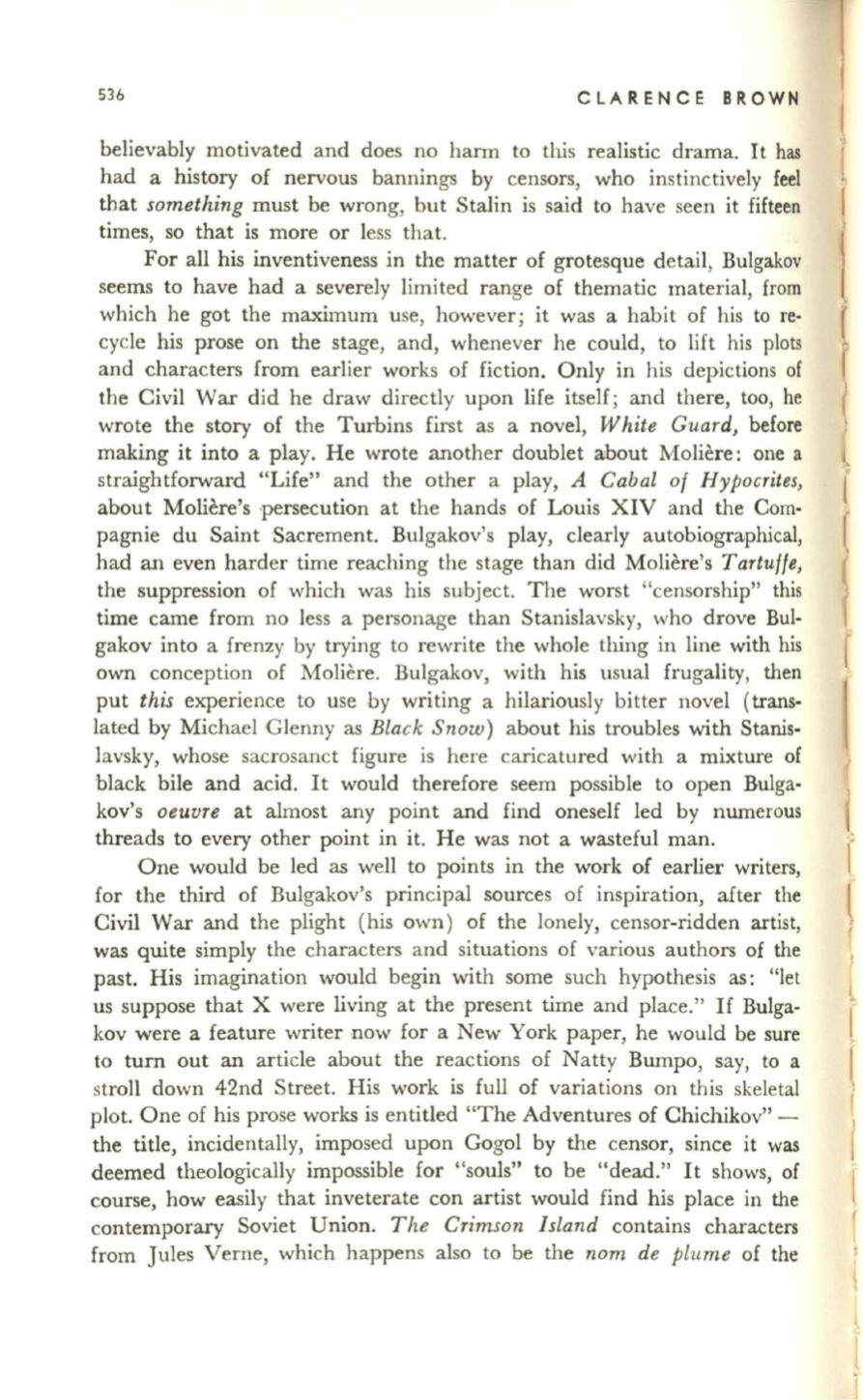
536
CLARENCE
BROWN
believably motivated and does no harm to th.is realistic drama.
It
has
had a history of nervous bannings by censors, who instinctively feel
that
something
must be wrong, but Stalin is said to have seen it fifteen
times, so that is more or less that.
For all his inventiveness in the matter of grotesque detail, Bulgakov
seems to have had a severely limited range of thematic material, from
which he got the maximum use, however; it was a habit of his to re–
cycle his prose on the stage, and, whenever he could, to lift his plots
and characters from earlier works of fiction. Only in his depictions of
the Civil War did he draw directly upon life itself; and there, too, he
wrote the story of the Turbins first as a novel,
White Guard,
before
making
it
into a play. He wrote another doublet a:bout Moliere: one a
straightforward "Life" and the other a play,
A Cabal of Hypocrites,
about Moliere's persecution at the hands of Louis XIV and the Com–
pagnie du Saint Sacrement. Bulgakov's play, clearly autobiographical,
had an even harder time reaching the stage than did Moliere's
T artuffe,
the suppression of which was his subject. The worst "censorship" this
time came from no less a personage than Stanislavsky, who drove Bul–
gakov into a frenzy by trying to rewrite the whole thing
in
line with his
own conception of Moliere. Bulgakov, with his usual frugality, then
put
this
experience to use by writing a hilariously bitter novel (trans–
lated by Michael Glenny as
Black Snow)
about his troubles
with
Stanis–
lavsky, whose sacrosanct figure is here caricatured with a mixture of
black bile and acid.
It
would therefore seem possible to open Bulga–
kov's
oeuvre
at almost any point and find oneself led by numerous
threads to every other point in it. He was not a wasteful man.
One would be led as well to points in the work of earlier writers,
for the third of Bulgakov's principal sources of inspiration, after the
Civil War and the plight (his own ) of the lonely, censor-ridden artist,
was quite simply the characters and situations of various authors of the
past. His imagination would begin with some such hypothesis as: "let
us suppose that X were living at the present time and place."
If
Bulga–
kov were a feature writer now for a New York paper, he would be sure
to turn out an article about the reactions of Natty Bumpo, say, to a
stroll down 42nd Street. His work is full of variations on this skeletal
plot. One of his prose works is entitled "The Adventures of Chichikov" -
the title, incidentally, imposed upon Gogol by the censor, since it was
deemed theologically impossible for "souls" to be "dead." It shows, of
course, how easily that inveterate con artist would find his place in the
contemporary Soviet Union.
The Crimson Island
contains characters
from Jules Verne, which happens also to be the
nom de plume
of the
I
!
(
i
(
(
t
r
l
l


